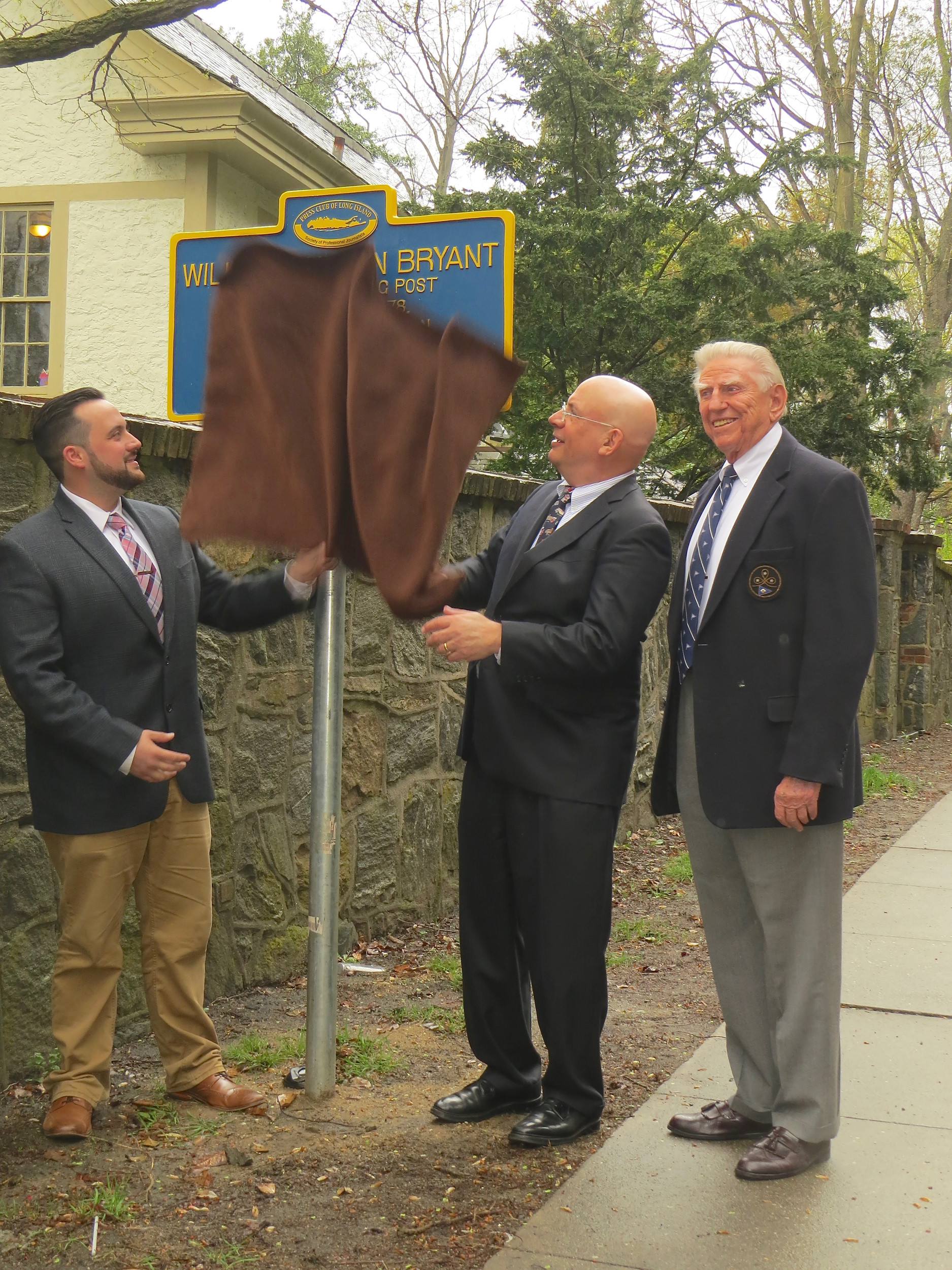Remembering William Cullen Bryant, poet, nature lover – and journalist
Chances are that most Long Islanders who are aware of the story of William Cullen Bryant — the man who lived at Cedarmere in Roslyn Harbor — will recall something about his having been a poet, or perhaps a nature lover.
They’d be right. Partially. But there was far more to Bryant.
It turns out he was something of a Renaissance man of the 19th century — and one of his chief claims to fame was his role as a newspaperman in the heady days of the Penny Press era, during which he ran the New York Post.
Hoping to bring the journalistic facet of Bryant’s illustrious career more fully to the forefront, the Press Club of Long Island this week placed a historical marker to that effect outside his Cedarmere estate.
The simple marker reads: William Cullen Bryant, New York Evening Post Editor 1829 – 1878. Supported Abolition, Union Rights, American Art, Public Libraries and Parks. Joining members of the club at the unveiling were Town of North Hempstead Historian Howard Kroplick and John Dawson, president of Friends of Cedarmere.
As editor-in chief and part owner of the influential New York Evening Post from 1829 to his death, Bryant had an enormous impact on national affairs, noted Dawson. “William Cullen Bryant was a real Renaissance Man,” he said. “He was a poet. He was a lover of nature. He was a founder of the Metropolitan Museum and Central Park, and president of a homeopathic medical college. He was a supporter of the Hudson River School of Art. He translated Homer. And he was in a unique position to utilize all his skills as an editor in New York.”
In an era when newspapers were notorious for planting fake news stories and sensationalizing local and world events to boost circulation — think Yellow Journalism — Bryant became known as a thoughtful, socially-committed editor, one who was not afraid to take on causes that he thought deserved public attention.
Among his key concerns? Abolition, worker’s rights, and anti-corruption in city government.
“The New York Post was one of the most significant papers in New York for 50 years,” said Dawson. “His leadership at that paper may not have the aura of some of the other things he did, but it's a part of the incredibly wide range of accomplishments of William Cullen Bryant.”
In fact, Bryant’s role as a newspaperman was of such importance that Abraham Lincoln wrote “It is worth a visit from Springfield, Illinois to make the acquaintance of such a man as William Cullen Bryant.”
Many did just that, noted Kroplick, by coming to Cedarmere.
“Cedarmere became a magnet for writers, artist and politicians seeking Bryant’s company and guidance,” he noted. “Prominent visitors included actor Edward Booth, author James Fenimore Cooper, inventor Samuel Morse, landscape architect Frederick Olmsted and Peter Cooper (the restaurateur). Bryant helped place Roslyn and the Town of North Hempstead on the map.”
For all his fame, Bryant’s work as a newspaperman “has not been given the attention that it perhaps deserves,” said Friends of Cedarmere president Dawson. “Hopefully with the placing of this plaque they will understand better his role as editor of a very important paper of the 19th century and as a supporter of key causes of his day.”

 45.0°,
Mostly Cloudy
45.0°,
Mostly Cloudy 




